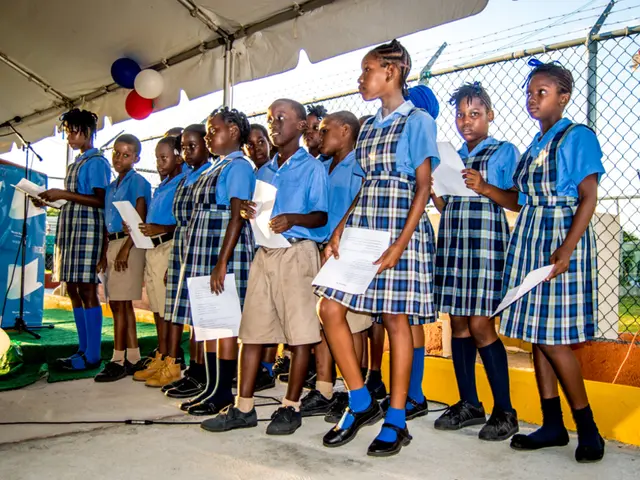Impact of Divorce on Children and Strategies to Aid in Coping
During a divorce, children can experience a range of emotional and psychological challenges. Understanding these potential side effects can help parents provide the necessary support to their children. Here's a closer look at the short-term and long-term effects that divorce may have on children:
Short-term Effects
Young children may feel anxious, stressed, and extremely sad due to the parental separation. Mood swings and irritability are also common reactions among children who are going through a divorce. Older children might display rebellious behavior as they cope with the situation. In instances of contentious custody battles or high levels of marital conflict, children might feel intense distress.
Long-term Effects
Long-term effects of a divorce can have an impact on various aspects of a child's life. Substance abuse rates are higher among children who have gone through a divorce, with boys being twice as likely to smoke as compared to children from intact families. Low socioeconomic status can further exacerbate the effects of divorce, as children may struggle with poor academic performance, depression, and social withdrawal.
Factors Affecting the Impact of Divorce on Children
The age of the child, gender, personality, and socioeconomic background can play a role in how divorce affects children emotionally and psychologically. Divorce may impact children differently based on their unique personalities and their way of coping with stress. Gender might also influence the reaction of children, although studies have shown contradictory conclusions.
Positive Effects of Divorce on Children
Despite the generally negative view of divorce's impact on children, it can sometimes result in positive outcomes for children whose parents are involved in toxic or abusive relationships. Getting out of such an environment can offer children a safer, healthier home life, reduced exposure to conflict, and more quality time with each parent. Additionally, seeing a parent rebuild their life can also teach resilience and adaptability.
Minimizing a Child's Suffering During Parental Separation
Divorce can be an emotionally taxing experience for children. To help minimize the impact, it is essential to show quality parenting, understand hidden emotions, manage conflicts, consider intervention programs, build healthy child-parent relationships, and celebrate small wins with children. It is crucial to protect children from abusive environments and to open lines of communication to help them cope with their emotions.
FAQs
Q: How does divorce affect a child's future romantic relationships?
Research suggests children of divorce may develop different attachment styles or relationship expectations. Some become more resilient and selective, while others struggle with trust or fear of abandonment. The long-term impact often depends on how parents modeled healthy conflict resolution post-divorce.
Q: Can divorce improve a child's emotional intelligence?
Divorce can offer opportunities for children to develop greater emotional intelligence, empathy, adaptability, and problem-solving skills.
Children require extra support and understanding during a divorce. While parental divorce can have long-term effects on a child's social skills, education, mental health, and substance abuse, understanding these potential side effects can help parents take proactive steps to minimize distress and foster resilience in their children.
- In the face of divorce, children may show a range of short-term reactions such as anxiety, stress, and sadness, while older children might exhibit rebellious behavior or mood swings.
- Long-term effects of divorce can manifest in various facets of a child's life, potentially leading to higher substance abuse rates, particularly among boys, and struggles with academic performance, depression, and social withdrawal.
- The impact of divorce on children can be influenced by factors like age, gender, personality, and socioeconomic background, with each child coping with the situation in their unique way.
- Contrary to the negative connotation, divorce can sometimes have positive outcomes for children, by offering them a safe, healthy home environment, reduced exposure to conflict, and opportunities to learn resilience and adaptability.
- To help minimize the emotional toll on children during a separation, parents should focus on quality parenting, understanding hidden emotions, managing conflicts, considering intervention programs, building healthy relationships, and celebrating small wins with their children.








